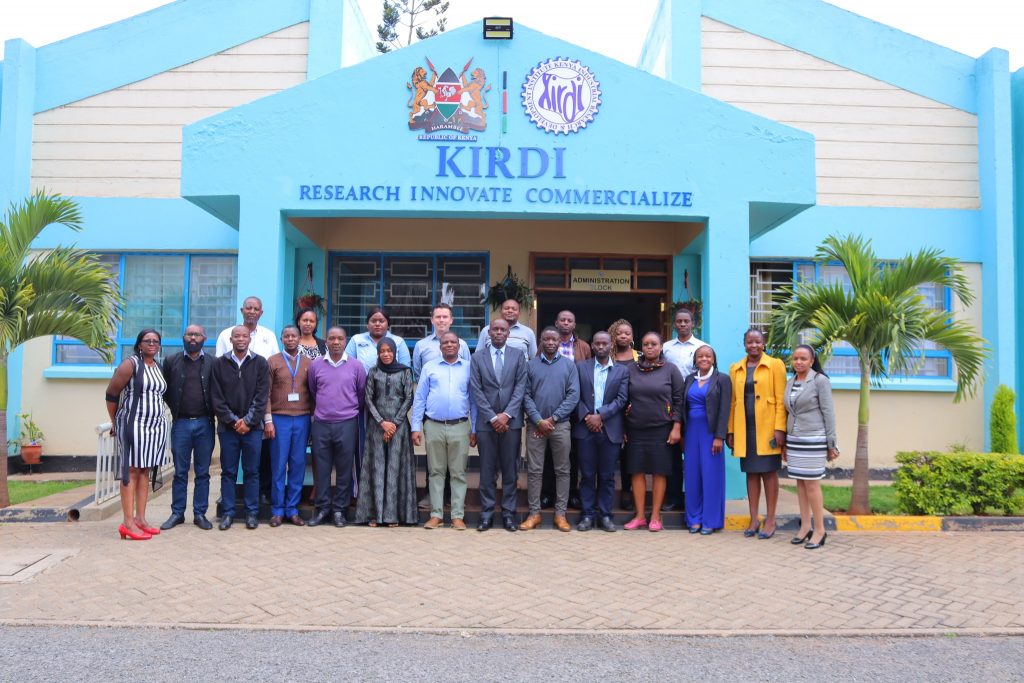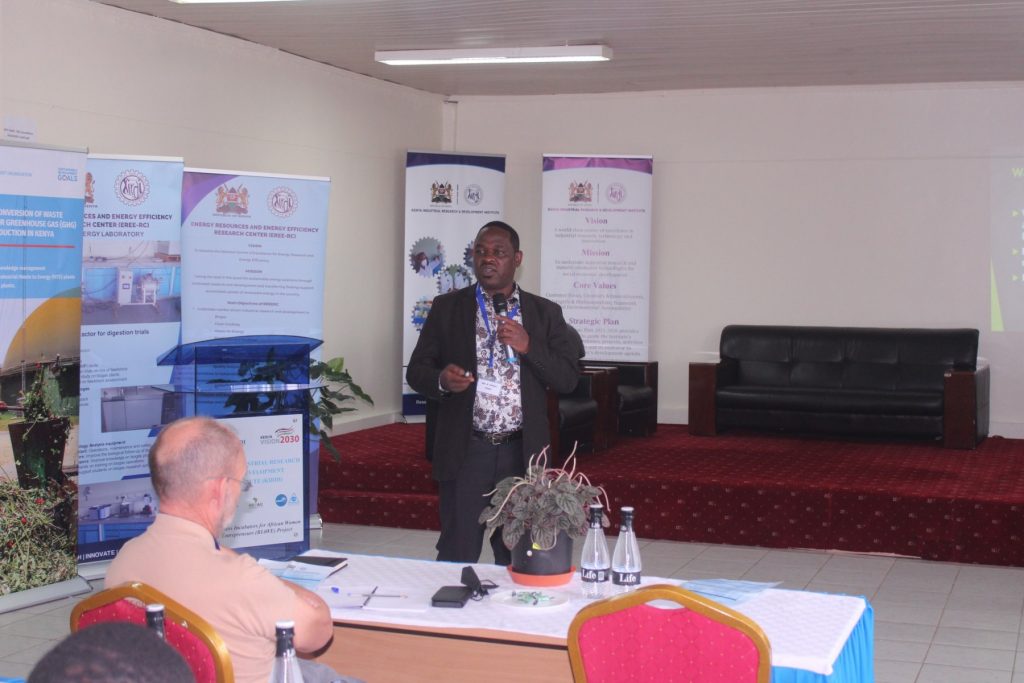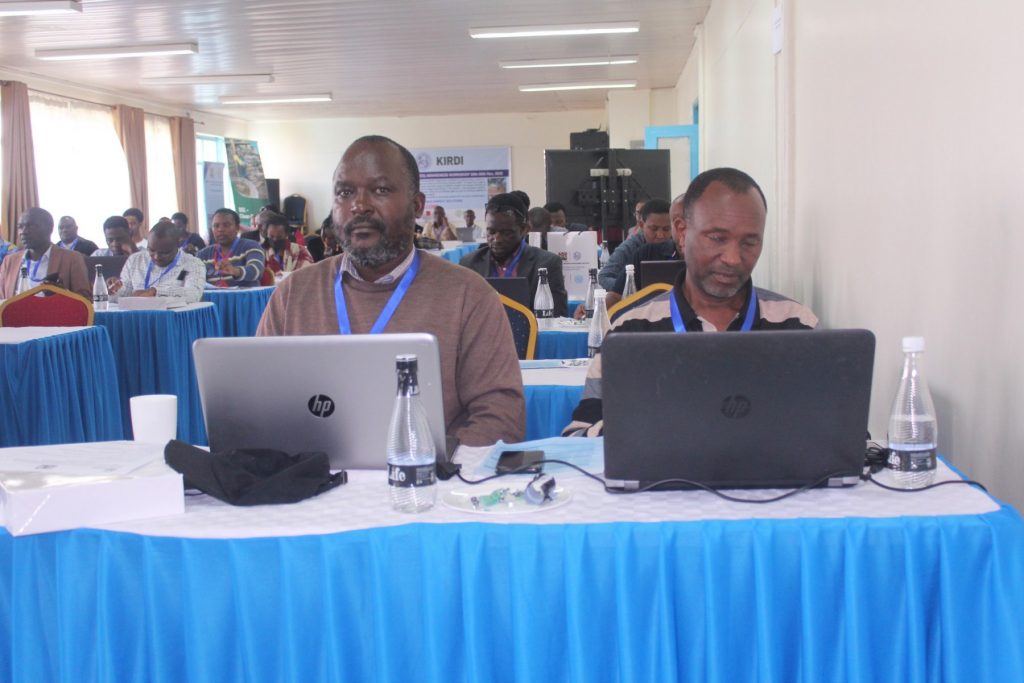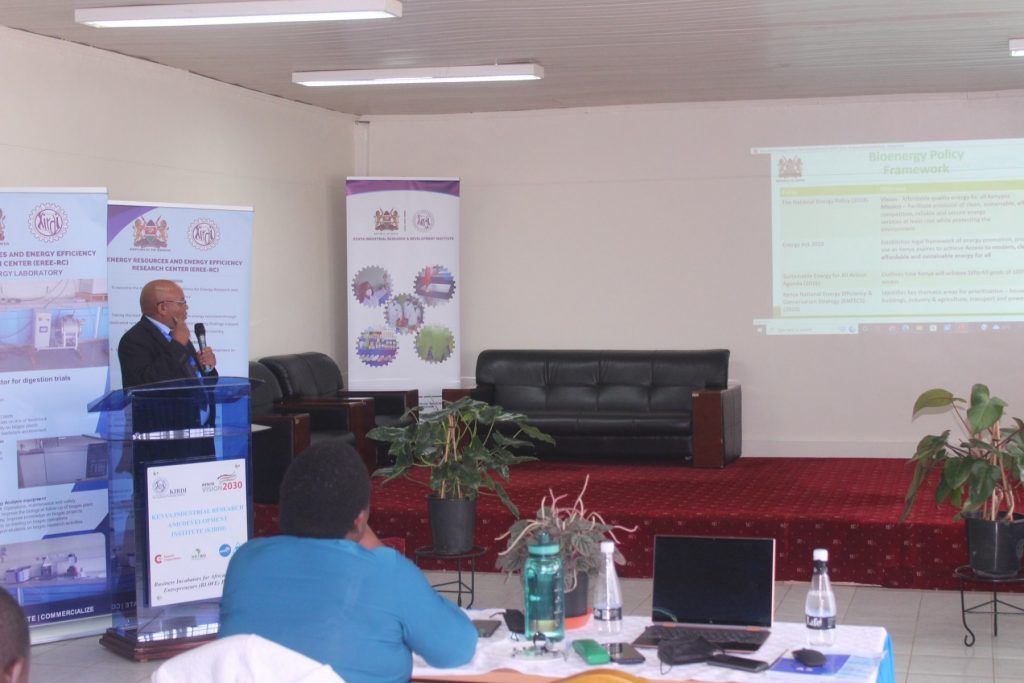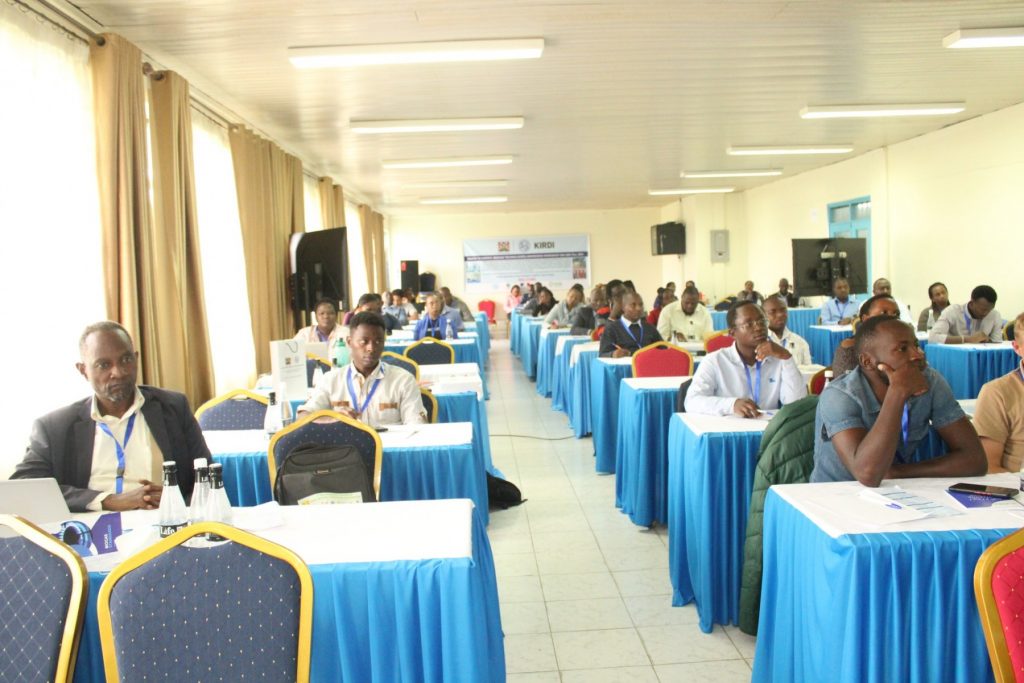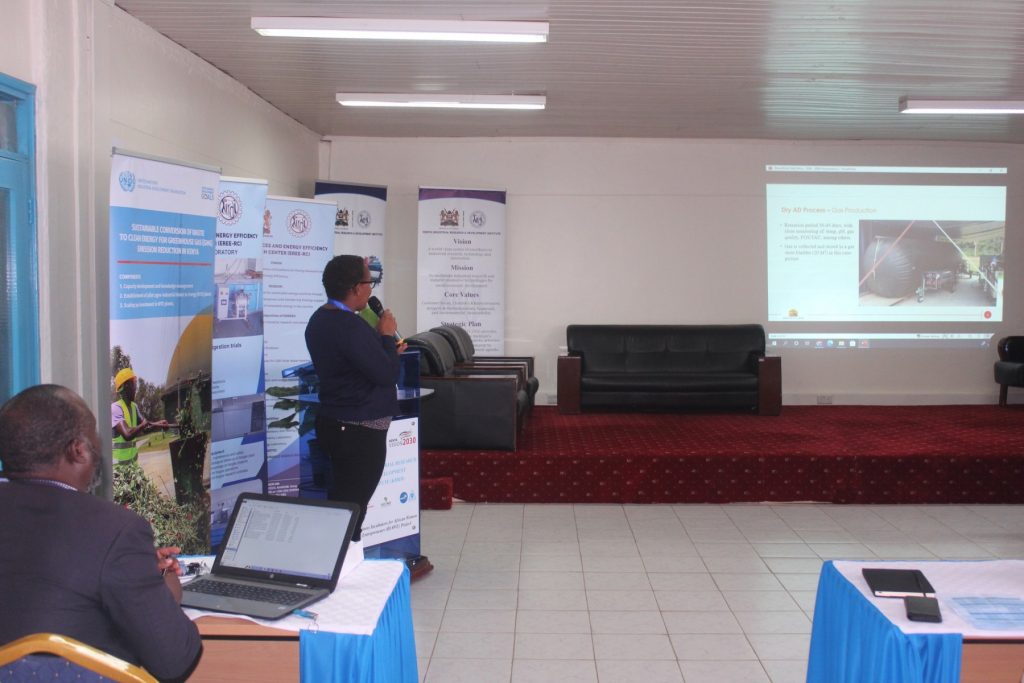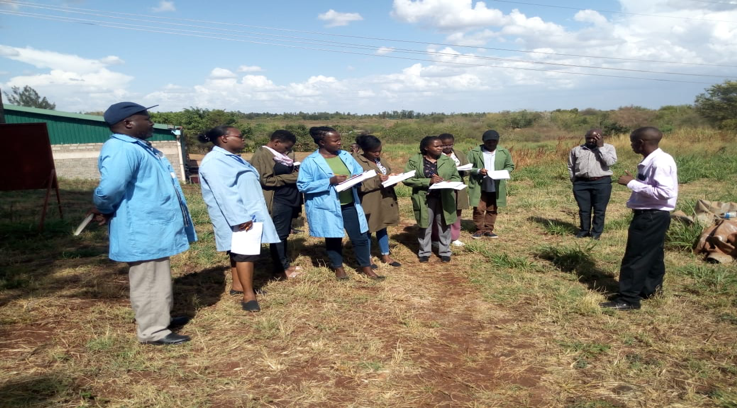Feasibility studies were done on Industrial biogas plants in Kenya by KIRDI and UNIDO
Improve awareness, and knowledge and develop capacity in the biogas sector as well as act as a repository of information on best practices in biogas technology in the country.
FASEP- Private Sector study and support fund PROJECT
The collaboration between KIRDI and NASKEO for the Implementation of the FASEP Project, targeting the promotion of biogas projects within the Zone.
Feasibility study – Plant 08
Initiatives include biogas production at the County slaughterhouse, and solar water pumping at the main water pumping station in Lake Victoria.
Feasibility study – Plant 07
Developing a biogas project using organic waste from markets, slaughterhouses, sugar and water hyacinth and organic waste from the municipal dumpsite.
Feasibility study – Plant 06
Plant 6 is a major producer of ethanol, alcoholic beverages and yeast, plus CO2 which is sold to industry. The ethanol is produced using molasses.
Feasibility study – Plant 05
Plant 5(near Voi) is the world’s largest producer of sisal fibre. They operate 6 decorticators, producing some 600 tonnes of sisal fibre per month.
Feasibility study – Plant 04
The Plant 4 in Murang’a was established in 2010. It produces avocado oil from avocado fruit that is grown by smallholder farmers in the area.
Feasibility study – Plant 03
Plant 3 pig farm is located in Uplands, some 40km North of Nairobi. It consists of two large and one small farm, a feed mill and an administrative block.
Feasibility study – Plant 02
Hosts four slaughterhouses within a few hundred metres: Nyongara,
New Plant 2, MS Thiani and Mumu.
600‐700 heads of cattle and 200‐300 sheep and goats.
Feasibility study – Plant 01
Plant 1 has hosted a biogas plant running on sisal pulp and cattle dung since 2008, under the management of the company’s subsidiary Biogas Power Holdings (EA) Ltd.



